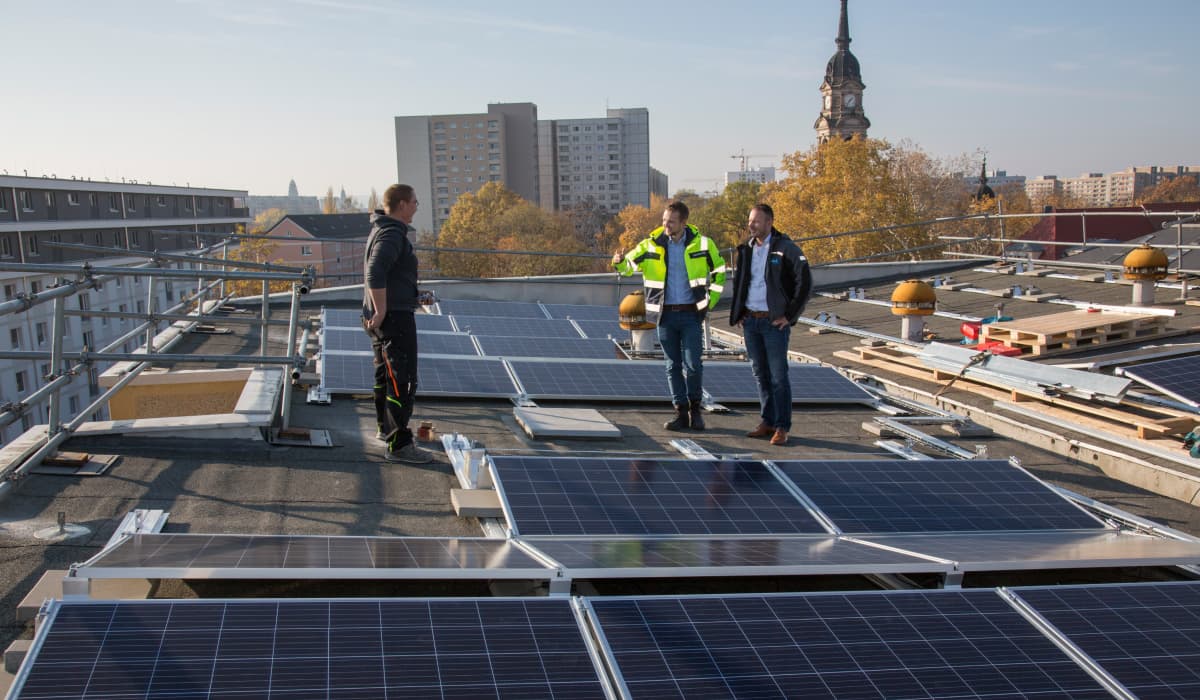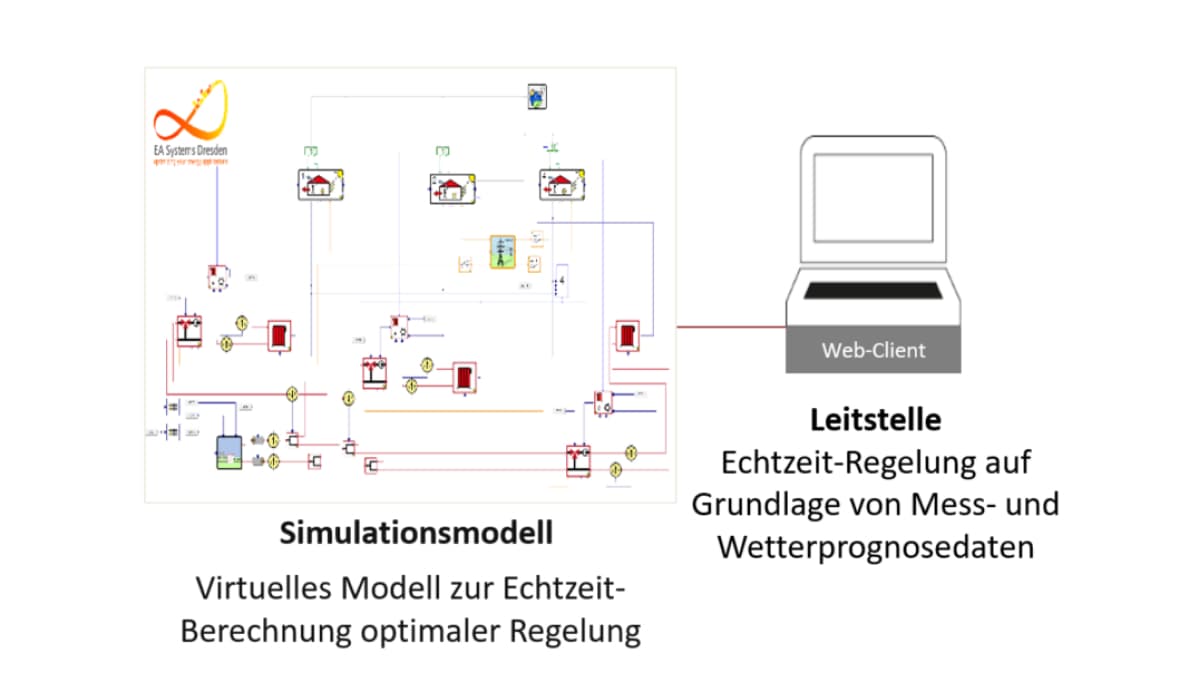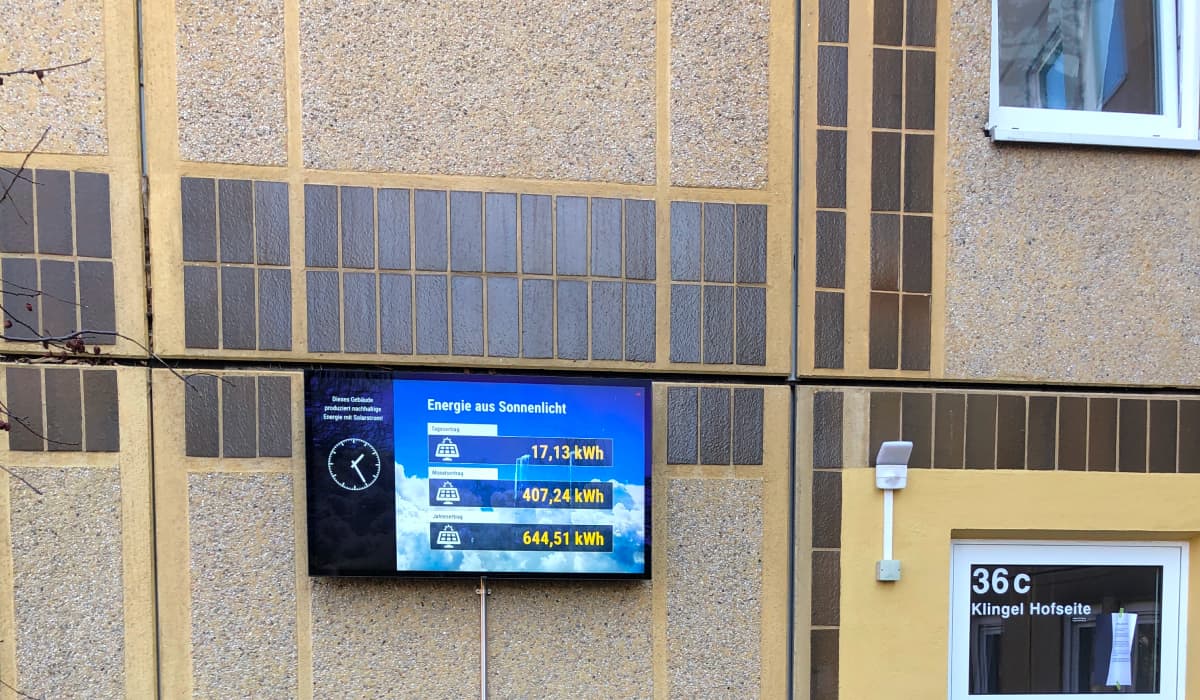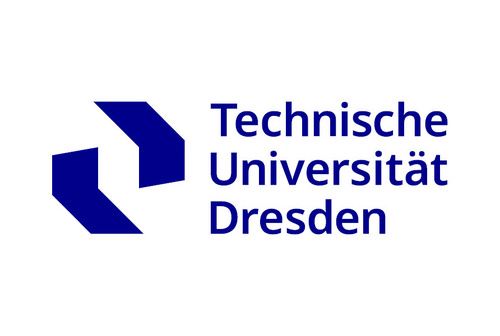MAtchUP
Cooperation between cities, industry and the population to establish solutions and business models that improve energy and resource efficiency


Cooperation between cities, industry and the population to establish solutions and business models that improve energy and resource efficiency


The European flagship project MAtchUP was part of a large-scale program to promote Smart Cities in Europe. The project focused on the integration of smart technologies in the areas of energy, mobility and information and communication technology (ICT).
Dresden has been facing up to the challenges of climate change and urbanization for years and, as one of the leading Smart cities in Germany, has taken on a key role in this project. On the way to a sustainable and liveable city, innovative solutions have been tested that improve the lives of the population and strengthen the business location.


The installation of photovoltaic systems in conjunction with battery storage systems and the integration of smart metering technology have brought about concrete improvements in the local energy supply. Smarte technologies such as Smart meter gateways are used in buildings to give tenants more transparency and control over their energy consumption and, on this basis, to make living more efficient and sustainable. New tenant electricity tariffs have been developed and tested.
Whether in the field of energy or digital infrastructure, the new solutions aim to make everyday life more convenient while protecting the environment.

One of the biggest innovations that MAtchUP offers the population is the promotion of electromobility and the development of smartmobility concepts. Building on the city council resolution on mobility points, these were transferred into a concept under the name MOBI and implemented in Johannstadt MOBIpunkte. New mobility offers such as car sharing models, electric vehicles and bike sharing make mobility in Dresden more flexible and environmentally friendly. The new services that have been created enable citizens to switch to sustainable transportation without sacrificing comfort or flexibility.

The MAtchUP project was able to integrate innovative technologies into the everyday lives of Dresden's residents. Whether through sustainable energy generation, energy efficiency or electromobility - citizens are actively helping to shape a greener future. At the same time, they benefit from an improved quality of life thanks to cleaner air, less traffic noise and lower costs.


The MAtchUP project has enabled the project partners to position themselves in forward-looking areas, open up new markets and benefit from strong international networking. The areas of energy efficiency, renewable energies, mobility and digitalization in particular offer enormous potential.

In the MAtchUP project, heat meters and sensors were installed to monitor the indoor climate and a so-called digital twin of the 102nd "Johanna" elementary school was developed. With this digital image of the "Johanna", the different influences on the room temperature could be simulated in various scenarios and the central heating control optimized. These findings can be transferred to other buildings in the city with a similar usage profile.

In the project, a central building control centre was set up to record the energy consumption of municipal buildings in Dresden (schools, daycare centres, etc.) and intervene to optimize them. Transmitting sensors were installed for this purpose, which monitor the room temperature in real time and report it to the central system.

MAtchUP offers companies various cooperation opportunities with public institutions and research facilities. This close cooperation gives companies access to the latest technologies. Dresden is driving forward the integration of Smart-City technologies. Companies interested in topics such as Smart grids, data infrastructure and electromobility can gain valuable impetus from the results of the MAtchUP project.

SachsenEnergie AG supplies around 300,000 customers with electricity, gas, district heating and drinking water.

"We move Dresden." With streetcars, buses, mountain railroads and ferries on more than 40 lines.

As energy architects, we stand for a modern, sustainable and efficient energy supply.

The IVI has many years of experience in the fields of transportation systems and electromobility as well as system integration and the energy management of various storage technologies.

The TU Dresden is one of the largest technical universities in Germany. With 17 faculties in five departments, it offers a wide range of 119 degree courses and covers a broad spectrum of research.


This project has received funding from the European Union's Horizon2020 research and innovation program under grant agreement No 774477.